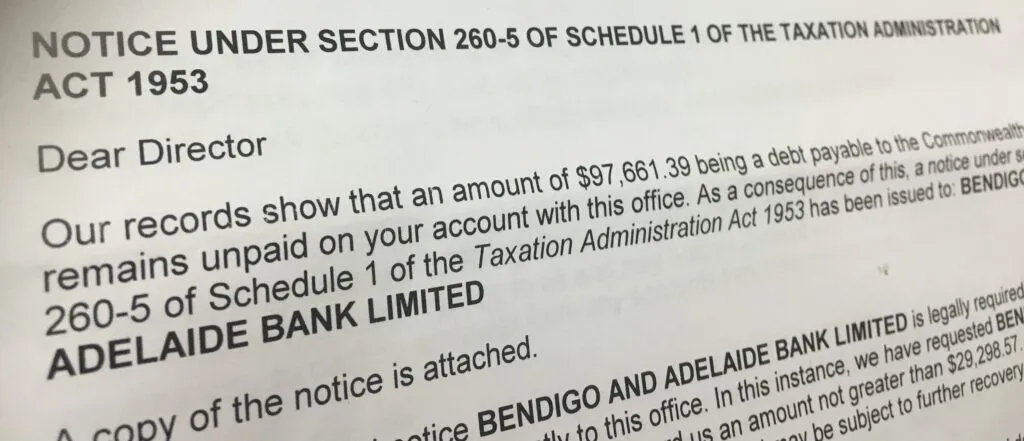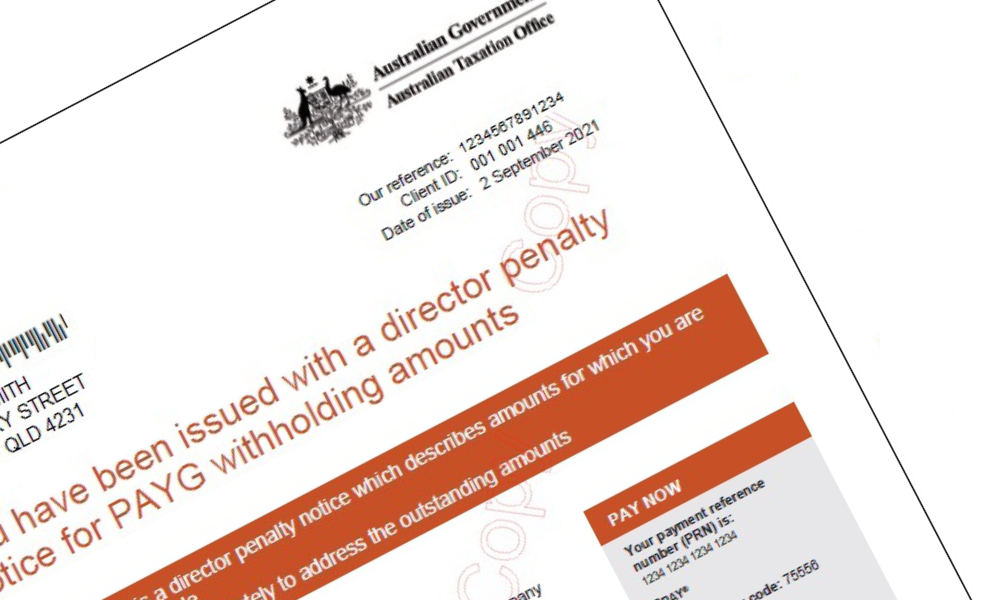Director guarantees are typically when a director offers a personal guarantee on credit for a business.
Outside of director guarantees on credit, what other obligations do company directors have? In certain situations, company directors may bear personal liability for the company’s debts, and regulatory actions can be taken against them. Here, we provide an overview of key aspects of personal liability for directors:
Key Company Director Obligations
#1 Duration of Director Guarantees/Liability for Company Debts
The liability of directors for a company’s actions extends beyond the company’s operational existence. Even after the company has ceased trading and been deregistered, directors may remain accountable for their obligations.
#2 Directors’ Liability for Company Debts, Losses, and Tax Obligations
Directors can be held liable for the company’s debts under specific circumstances, particularly when the company is unable to meet its financial obligations (insolvency). Directors have a fundamental duty to prevent a company from trading while insolvent. Signs of insolvency include low operating profits, difficulties in paying suppliers and creditors on time, loan repayment issues, and legal actions by creditors.
To assess insolvency, directors should evaluate the company’s cash flow, ensuring it can cover its debts as they become due, and the company’s overall financial position, determining if it can liquidate enough assets to meet its obligations. Trading while insolvent can result in legal and criminal violations under the Corporations Act.
#3 Directors’ Liability for Company Losses
Directors may become personally liable if their actions or decisions lead to financial losses for the company, constituting a breach of their duties under the Corporations Act. In such cases, directors may be legally responsible and may need to compensate the company for its losses.
#4 Using Personal Assets to Guarantee Company Loans
In commercial transactions, financial institutions or creditors may request personal guarantees from directors or security in the form of personal assets, such as a house, to secure the company’s performance. For example, a bank may require a mortgage on a director’s home to ensure repayment of a company loan. If the company fails to meet its loan obligations, the bank may enforce its right to seize or sell the director’s home. Providing personal guarantees can make directors personally liable for the repayment of company loans or debts.
#5 Directors’ Liability for Companies Acting as Trustees
If a director serves in a company acting as a trustee of a trust, they can become personally responsible for the company’s liabilities if the trustee company breaches the trust’s terms, operates outside its scope of powers as a trustee, or if the trust’s terms restrict or deny indemnification of the trustee company against liabilities.
Directors should be aware of these various scenarios of personal liability and diligently fulfill their duties to mitigate such risks and ensure legal compliance.
Related Points
#1 Consequences of Failing to Fulfil Director Duties:
Neglecting your obligations as a director can result in the following outcomes:
- You may face a thorough investigation and potential criminal charges, which could lead to convictions for serious offenses.
- Your actions may constitute a breach of civil penalty provisions, and as a result, the court may order you to pay fines.
- Personal liability may arise, requiring you to compensate the company or other affected parties for any losses or damages they incur.
- You may face disqualification from holding a position as a company manager.
#2 Are Shareholders Liable for Company Debts?
In the case of a ‘limited’ company, shareholders, in their capacity as shareholders, are not personally responsible for the company’s debts. Their primary obligation as shareholders is to pay any outstanding amount on their shares if they are called upon to do so. It’s important to note that shareholders who also serve as directors may potentially become personally liable in specific circumstances.
Company Director Obligations Summarised
Company directors have a range of legal obligations beyond offering personal guarantees on credit. They may be personally liable for company debts, particularly in cases of insolvency or where they’ve allowed the business to trade while insolvent.
Directors can also be held accountable for company losses stemming from breaches of their duties, and may face regulatory action, fines, or even criminal charges if those duties are neglected. Additionally, personal liability can arise when directors use personal assets to guarantee loans or when the company operates as a trustee and breaches trust obligations.
While shareholders aren’t generally liable for company debts, those who are also directors may face personal risk in certain situations.



